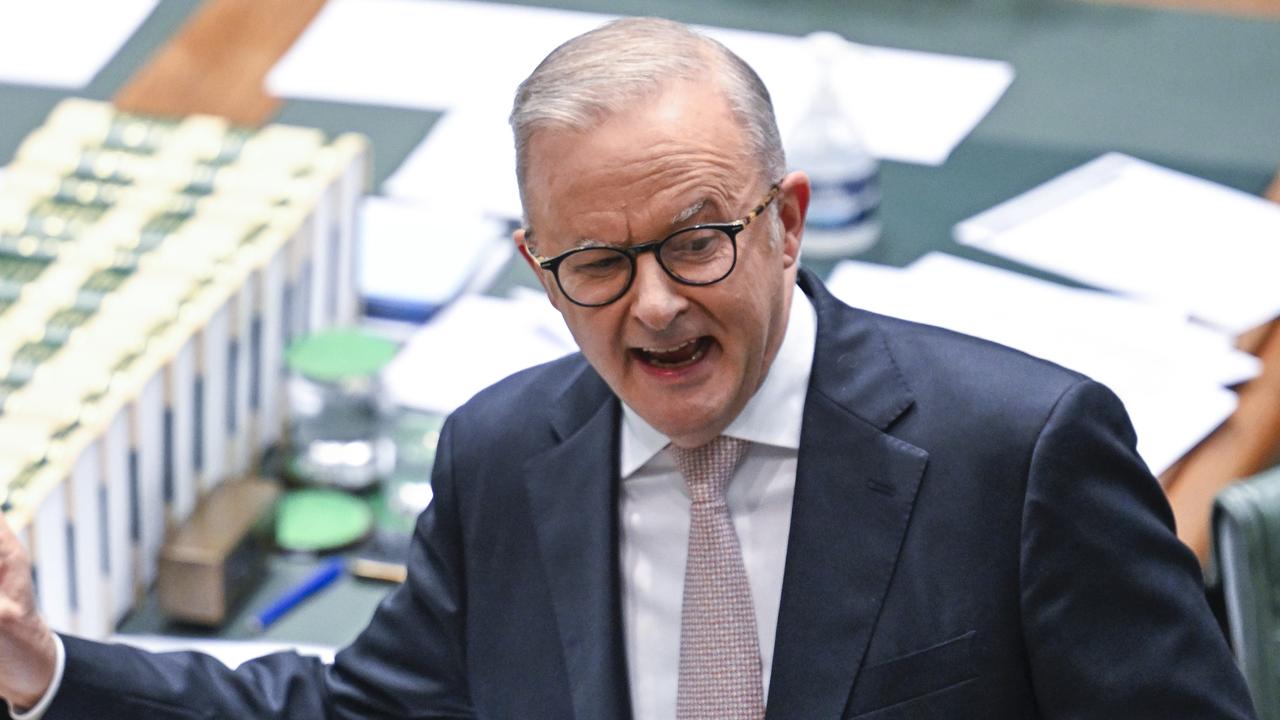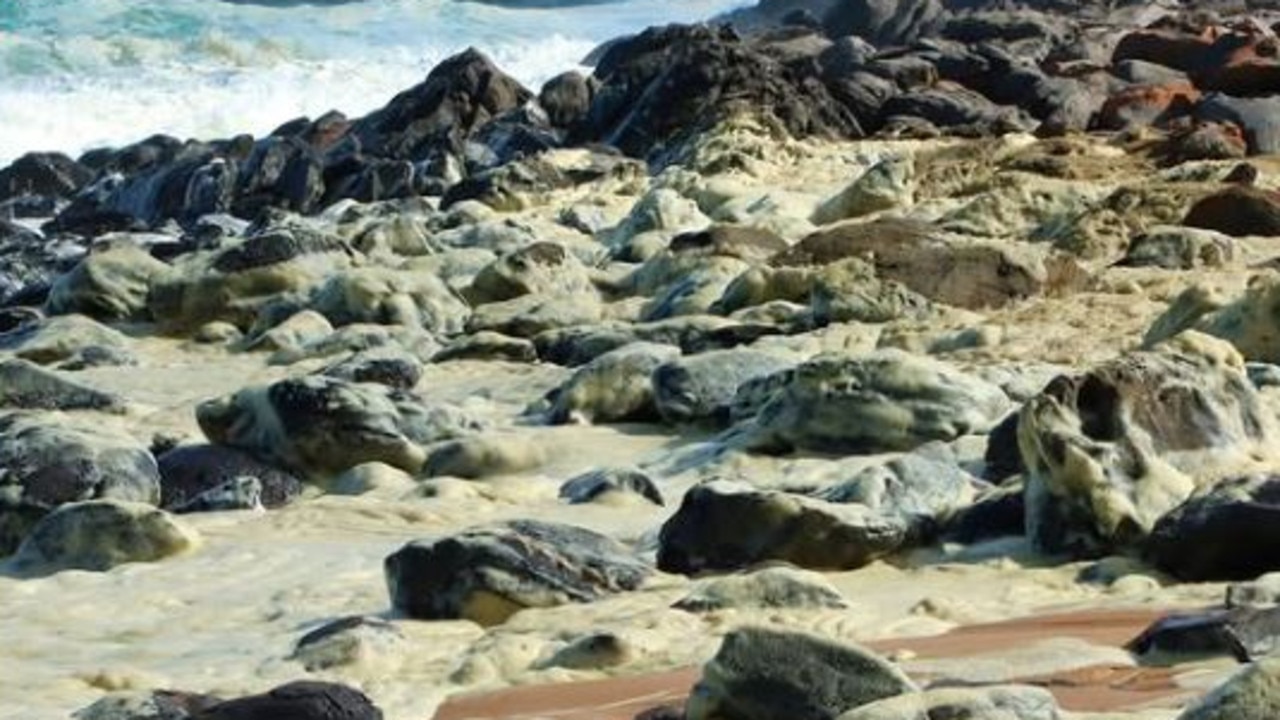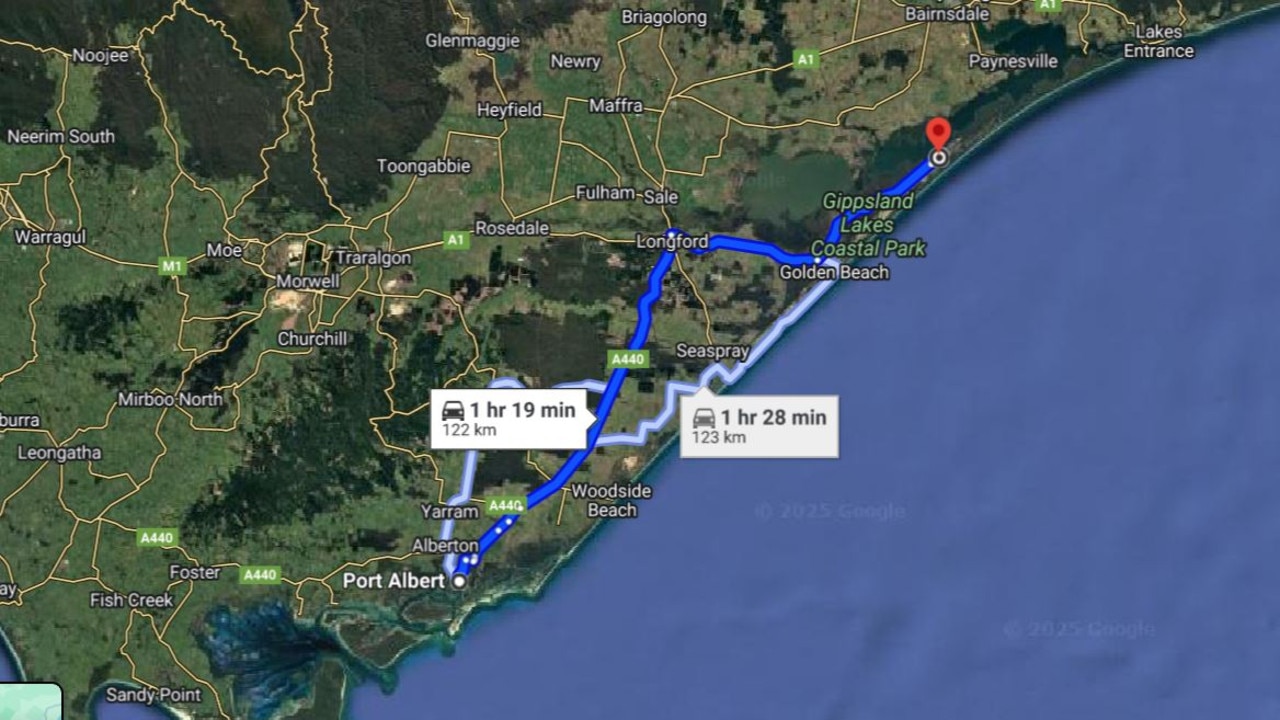‘We have no choice’: Nation forced into Metaverse as it ‘disappears’
A Pacific island country has given a spinechilling address to world leaders, saying climate inaction has forced it to become “the world’s first digital nation”.
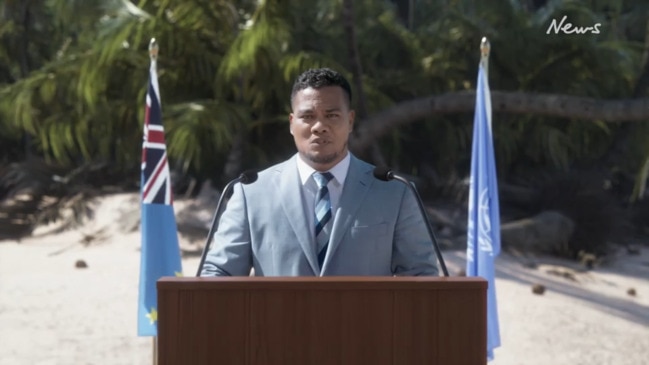
The tiny, low-lying Pacific Island nation of Tuvalu has delivered a spinechilling address to world leaders at COP27, confirming climate inaction has forced it to become “the world’s first digital nation”.
Tuvalu’s foreign affairs Minister Simon Kofe made the bleak address to the climate summit via a video from what appeared to be a natural island, before it panned out to reveal he was on a digitally recreated island in the Metaverse – what he believes is now the future of the nation.
The low-lying nation of nine islands, 1000km north of Fiji, is under severe threat from rising sea levels caused by climate change.

“Today, I speak again from my country from a small island that is likely to be one of the first spots in Tuvalu to be submerged by rising sea levels,” Mr Kofe said.
“Since COP26, the world has not acted, and so we in the Pacific have had to act.
“We’ve had to take our own precautionary steps with the Future Now project.

“As our land disappears, we have no choice but to become the world’s first digital nation. Our land, our ocean and our culture are the most precious assets of our people.
“And to keep them safe from harm, no matter what happens in the physical world, will move them to the Cloud,” he said.
“Islands like this one won’t survive rapid temperature increases, rising sea levels and droughts.”

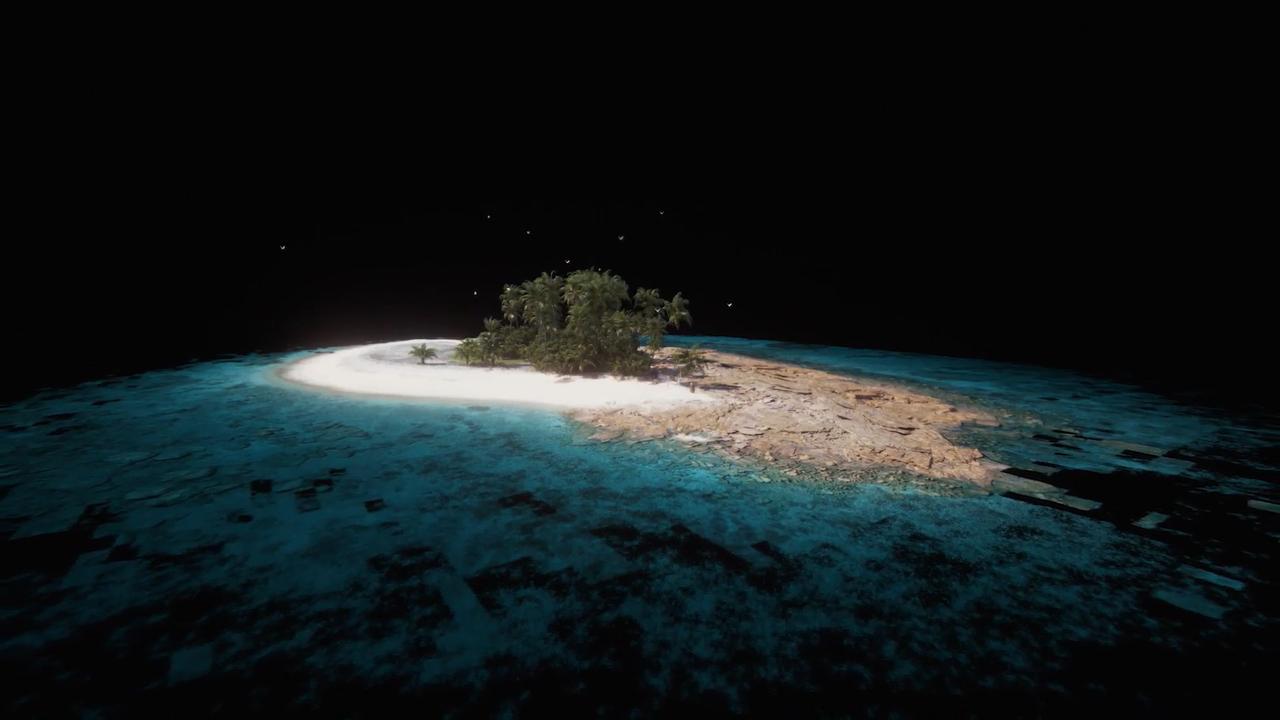
The Metaverse is a virtual world where users can theoretically live, work, shop and interact with others from the comfort of their couch in the physical world, with Tuvalu’s transition engineered by global professional services company, Accenture.
So far, the company has created a “digital twin” of the island Te Afualiku, according to Accenture health and public service lead John Vidas.
“The digital twin offers an accurate, visually immersive virtual model of the real-world environment,” he told news.com.au.
“Accenture has gathered photos, videos and drone footage to recreate the island – including the grains of sand on the beach to the direction of water currents in the ocean.”
As climate change continues to threaten the island nation, Mr Vidas said the focus was on preservation.
“Tuvalu is taking the realities of climate change seriously and looking for ways to preserve their lands and culture.
“With this project, we have tried to help them use the best that technology has to offer, to envision and to prepare for a future that we hope does not become a reality.”

Tuvalu is an independent island nation of almost 12,000 people within the British Commonwealth in the South Pacific.
It is now preparing to become the first wholly digitised nation in the Metaverse to ensure it can preserve its culture and knowledge.
The nation blasted world leaders for not adhering to commitments made in the 2015 Paris Agreement, which had all but forced Tuvalu into the Future Now project.
“As a progressive nation, we are excited at the opportunity for Tuvalu to exist in the Metaverse – but not to the extent of losing our lands,” Mr Kofe told the conference.
And he warned his nation might not be the last.
“The tragedy of this outcome cannot be overstated. But because the world has not acted, we must. Tuvalu could be the first country in the world to exist solely in cyberspace – but if global warming continues unchecked, it won’t be the last.”
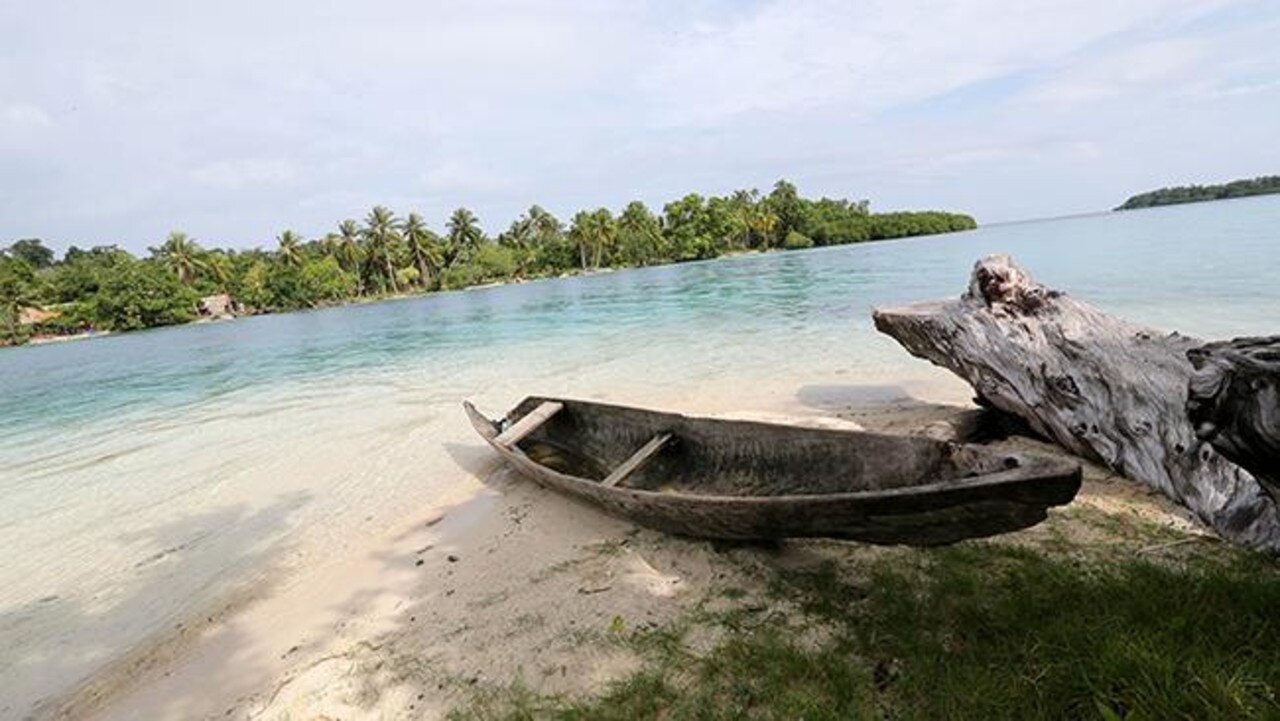
The Tuvalu government is currently building digital replicas of all its islands as part of an accurate, visually immersive virtual model of a real-world environment.
Mr Kofe called on people across the world to help by holding their governments to account over Paris Agreement commitments. The island nation has even developed a website that includes pre-written letters of action for people to send to their local government representatives.
As well as a physical transition online, the government is looking at how to digitise its government administrative system, shifting its operations online so that it can continue to function fully as a sovereign state in a digital world.
It is also pursuing legal avenues to ensure its permanency of statehood and maritime boundaries even as sea levels rise.
“It has long been the time for action, but we have not stepped up to the challenge,” Mr Kofe said.
“We must start doing so today. Otherwise, within a lifetime, Tuvalu will only exist here [in the Metaverse].”




